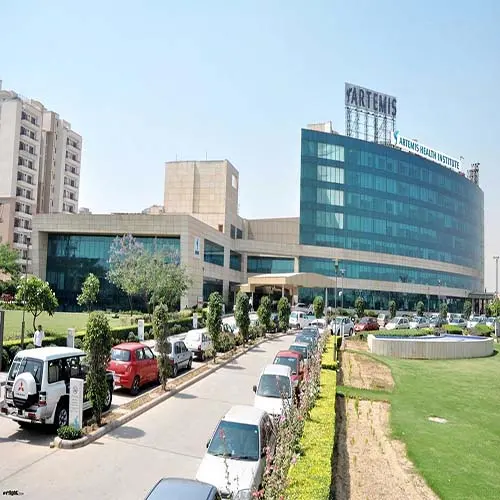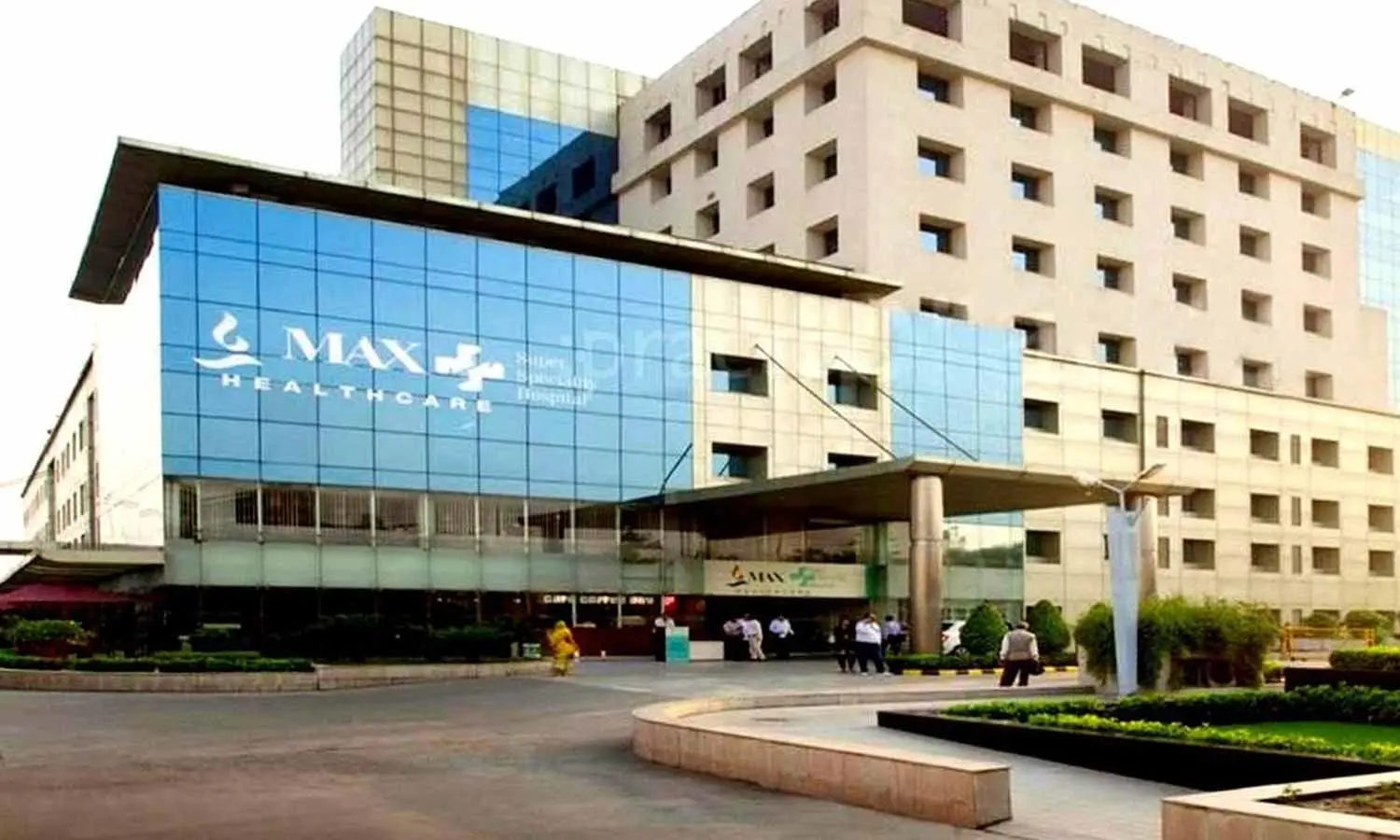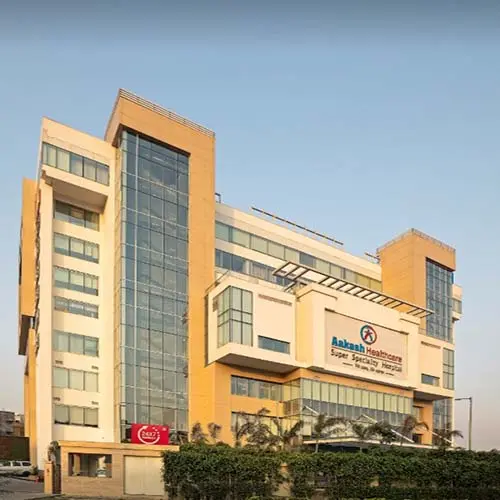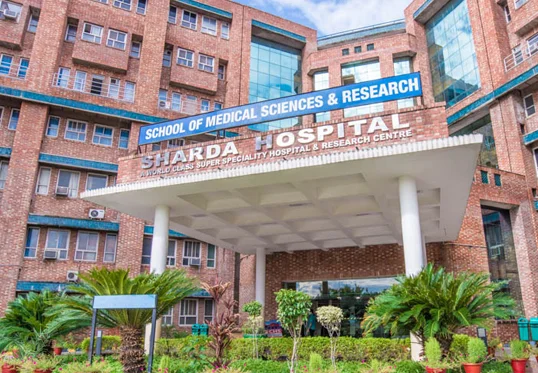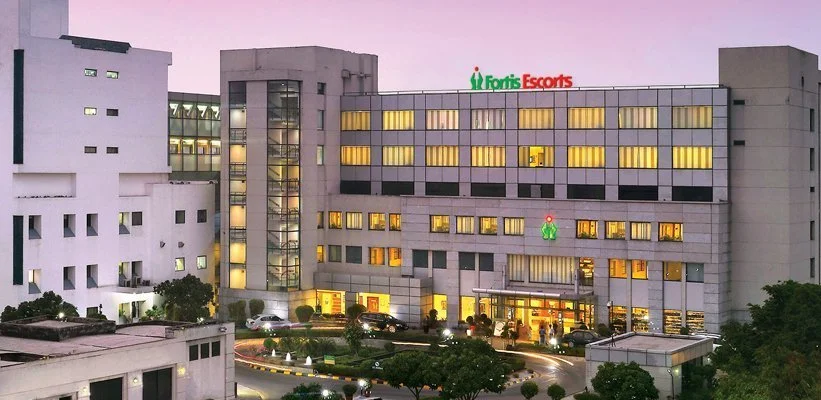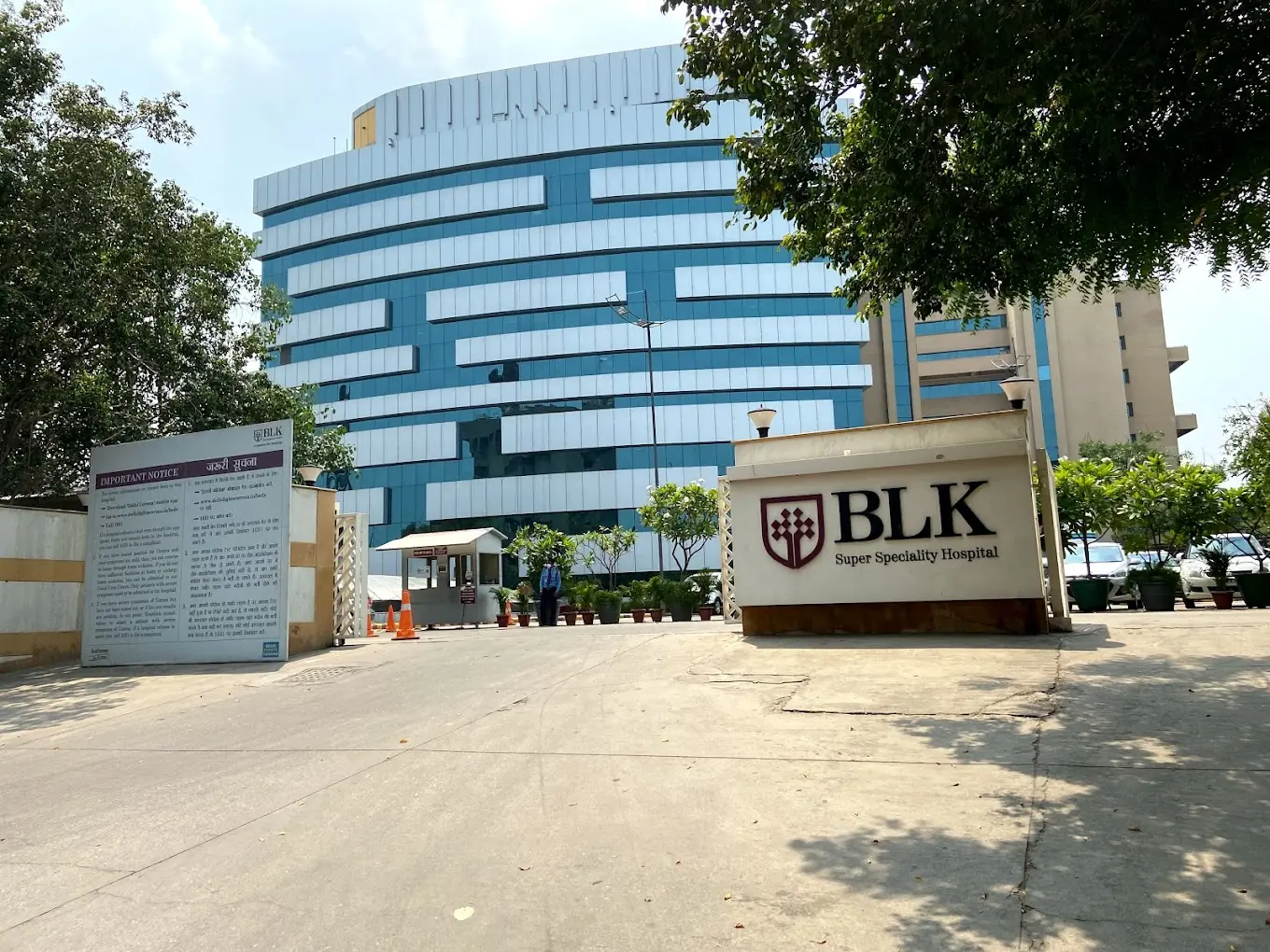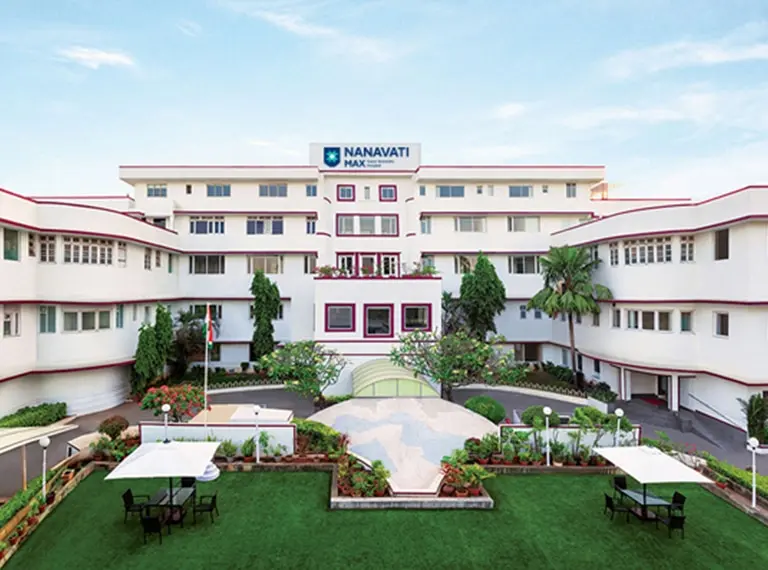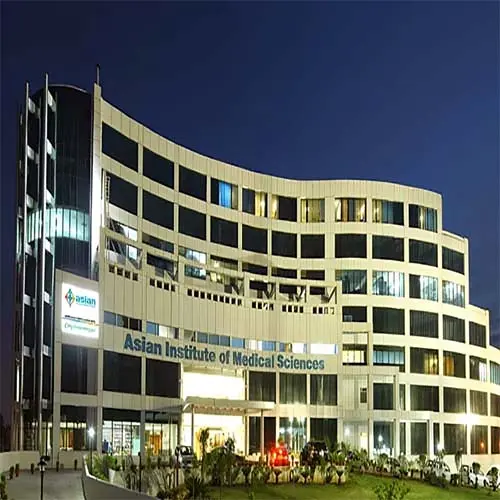Heart Valve Replacement cost in India
The cost of Cardiac Valve Replacement Surgery in India generally ranges from $6,500 to $11,500, which is approximately ₹5,30,000 to ₹11,50,000. This surgery is performed to replace a damaged heart valve with either a mechanical valve or a biological (tissue) valve to restore normal blood flow and improve heart function. The traditional method involves open-heart surgery, which remains the most common and affordable option. The cost is lower as compared to the western countries for the minimally invasive or transcatheter aortic valve replacement (TAVR/TAVI) techniques.
Cost Range of Heart Valve Replacement cost in India
The exact cost also depends on the number of valves being replaced, the patient’s overall health, hospital facilities, and post-surgery care requirements. India has become a preferred destination for cardiac valve replacement due to its world-class hospitals, skilled surgeons, affordable costs, and high success rates. Patients also benefit from structured rehabilitation and follow-up programs, ensuring safe recovery and long-term heart health.
Get a free cost estimate
Who should avail cardiac valve replacement in India?
Any international patient who is suffering from faulty cardiac valve with diagnosis such as aortic valve stenosis, mitral valve stenosis, aortic regurgitation or mitral regurgitation or any issue with the other two valves (pulmonary valve or tricuspuid valve) can opt for heart valve repair or replacement in India. It is more common for patients to suffer from stenosis or regurgitation of the aortic or mitral valve as compared to the pulmonary or tricuspid valve. Some of the top hospitals in India for heart valve replacement also offer minimally invasive transcather techniques for valve replacement.
Types of Heart Valve Replacement Cost
Here is an overview of the common types of heart valve replacement surgery along with their approximate cost range in USD:
Types of Heart Valve Replacement in India | Cost Range in USD |
Aortic Valve Replacement (Metallic Valve): This involves the traditional surgery to replace the faulty aortic valve with a synthetic metallic valve. | 6500 to 7500 |
Aortic Valve Replacement (Tissue Valve): This involves the traditional surgery to replace the faulty aortic valve with a tissue or bovine valve. | 7800 to 8500 |
Mitral Valve Replacement (Metallic Valve): This involves the traditional surgery to replace the faulty mitral valve with a synthetic metallic valve. | 6500 to 7500 |
Mitral Valve Replacement (Tissue Valve): This involves the traditional surgery to replace the faulty mitral valve with a tissue or bovine valve. | 7800 to 8500 |
Double Valve Replacement (Metallic Valve): This involves the traditional surgery to replace the faulty mitral and aortic valve with synthetic or metallic valve. | 8100 to 9500 |
Double Valve Replacement (Tissue Valve): This involves the traditional surgery to replace the faulty mitral and aortic valve with a tissue or bovine valve. | 9500 to 11500 |
Transcather Aortic Valve Replacement (TAVI): This is a minimally invasive catheter-based procedure to replace diseased or faulty aortic valve. | 30000 to 38000 |
Pulmonary Valve Repair / Replacement: This involves the surgery to repair or replace pulmonary valve. | 7500 to 8500 |
Tricuspid Valve Repair / Replacement: This involves the surgery to repair or replace the tricuspid valve. | 7500 to 8500 |
Get a free cost estimate
City wise Cost Comparison for Cardiac Valve Replacement in India
City | Cost in USD |
New Delhi / NCR | $6500 to $11500 |
Mumbai | $7500 to $12500 |
Bangalore | $7800 to $12000 |
Chennai | $7500 to $12500 |
Heart Valve Replacement Cost in India Inclusions
Patient investigations before surgery
Cost of valve(s)
Surgeon fee, OT charges, anesthesia
Pre-operative outpatient consultations
Routine drugs and consumables required during hospitalization
Pre-anesthesia check up and clearance
Hospital stay and meals as per the package
CABG Cost in India Exclusions
Angiography, if required
Hotel stay, meals and flights
Extended hospital stay
Post-operative follow-ups and medical management
Post-operative dressing and nurse visits
Any blood products
Complications management
Treatment for any other underlying medical conditions
Any complex investigations
Anything not covered in the package
Other Factors Affecting CABG Surgery Cost in India
Type and number of valves
Choice of location, doctor and hospital
Pre-existing medical history
Type of surgery and approach
Overall patient status and condition at the time of surgery
Diagnostic Tests for Heart Valve Replacement Surgery
Types of Tests For Heart Valve Replacement in India | Cost Range in USD |
Blood tests: These include the basic blood investigations for the patient to check organ functioning and infection status | 50 to 100 |
ECG & Echo: This includes the cardiac tests to check for any cardiac disorders | 80 to 150 |
Coronary Angiography: This includes the main test to indicate the percentage of blockage in the main cardiac arteries and to identify the location and number of blockages | 200 to 300 |
Why is India preferred as one of the best countries for medical treatments?
India should be the preferred choice for heart surgery due to several compelling reasons. Firstly, India offers cost-effective healthcare solutions, making it an attractive option for patients seeking affordable medical treatments. Compared to numerous developed nations, medical procedures in India are significantly more economical, allowing patients to save a considerable amount of money without compromising on the quality of care.
Secondly, India boasts a vast pool of proficient medical practitioners, including highly skilled physicians and surgeons. These healthcare professionals have gained recognition globally for their expertise and competence in performing complex heart surgeries. Patients can rest assured that they will receive the highest standard of medical care in India, with doctors who are well-versed in the latest advancements in cardiac treatments.
Additionally, India is home to internationally accredited hospitals that provide state-of-the-art facilities and technologies. These hospitals are equipped with cutting-edge medical equipment, ensuring that patients have access to the most advanced and innovative treatments available. The combination of skilled medical professionals and advanced infrastructure ensures that patients receive world-class cardiac care during their treatment journey.
Moreover, one of the notable advantages of choosing India for heart surgery is the minimal waiting periods. Unlike in many other countries, patients in India can benefit from shorter waiting times for surgeries and procedures. This promptness in scheduling treatments allows patients to receive timely medical attention, which is crucial in critical cardiac cases.
Furthermore, India understands the importance of providing comprehensive support to international patients. The country offers multilingual assistance to cater to the diverse needs of patients from around the world. This ensures effective communication between patients and medical professionals, eliminating any language barriers that may hinder the quality of care. In addition, India has well-established medical tourism facilitation services that help international patients navigate the healthcare system and make their treatment experience seamless and hassle-free.
Cost Comparison for Heart Valve Replacement Price in India with Other Countries
Country | Cost in USD |
India | 6500 to 11500 |
Turkey | 10000 to 28000 |
UAE | 45000 to 65000 |
USA | 175,000 to 195,000 |
Top Heart Hospitals in India
FAQs
Heart valve replacement surgery is needed when a heart valve becomes damaged or diseased, affecting the proper flow of blood through the heart. This can lead to symptoms such as shortness of breath, fatigue, chest pain, and dizziness. Surgery helps to restore normal blood flow and improve heart function.
There are two main types of heart valve replacements: mechanical valves and biological tissue valves. Mechanical valves are made of durable materials and last longer but require lifelong blood thinning medication. Biological tissue valves are made from animal or human tissue and do not require long-term blood thinners but may need to be replaced after 10-15 years.
The duration of heart valve replacement surgery varies depending on several factors, including the complexity of the procedure, the number of valves being replaced, and the patient's overall health. On average, the surgery takes about 2 to 4 hours.
The recovery time after heart valve replacement surgery can vary from patient to patient. Generally, patients spend a few days in the hospital for initial recovery, followed by a period of several weeks to a few months for complete rehabilitation and full recovery. The healthcare team will provide specific instructions for post-operative care and follow-up appointments.
While heart valve replacement surgery is generally safe, like any surgical procedure, there are potential risks and complications. These may include bleeding, infection, blood clots, valve dysfunction, irregular heart rhythms, and adverse reactions to anesthesia. Your surgeon will discuss these risks with you before the surgery.
Following heart valve replacement surgery, you may need to make certain lifestyle changes to promote heart health. This may include regular exercise, a heart-healthy diet, quitting smoking, managing stress, and taking prescribed medications. Your healthcare team will provide guidance on the specific lifestyle modifications you may need to make.
The durability of heart valve replacements depends on the type of valve used. Mechanical valves can last for several decades, but lifelong blood thinning medication is required. Biological tissue valves usually last between 10 to 15 years before they may need to be replaced. The lifespan of the replacement valve can vary between individuals.

